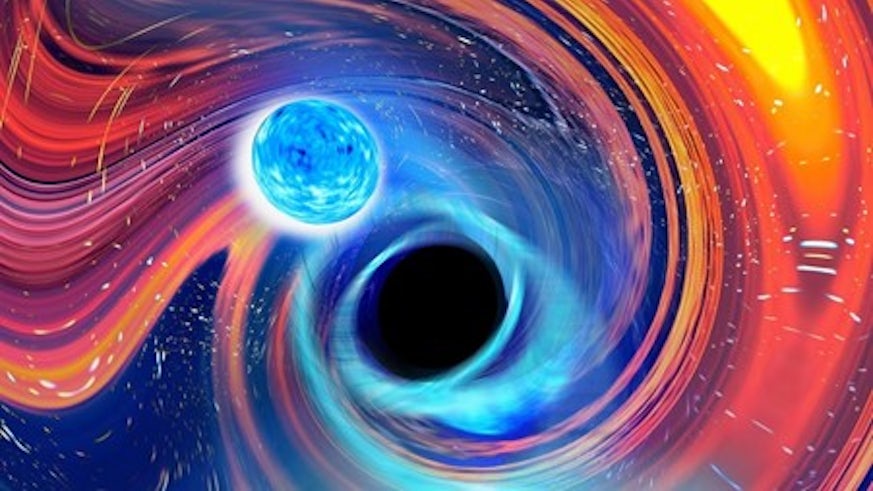Hawk supports LIGO discovery
25 August 2021

The Laser Interferometer Gravitational-Wave Observatory (LIGO) recently announced, for the first time, that they have been able to detect ripples in space-time caused by the collision of a black hole and neutron star.
Work to support this important discovery involved running simulations of the neutron star and black hole merger event. As part of this analysis, extra compute resource was required to allow the data from the LIGO detector to be compared to computer simulation. In support of this work Cardiff researcher, Virginia D'Emilio, contacted ARCCA to request access to Hawk partitions available independently from the dedicated Cardiff LIGO compute resource. Working in collaboration with other LIGO centres, this additional resource provided the group with the ability to submit long-running simulation jobs with access to over a 1000 cores.
Working with Virginia over several months, ARCCA were able to provide help and advice with running jobs on Hawk that supported simulation workload activities carried out at other LIGO High Performance Computing (HPC) centres, thereby ensuring completion of the work in time for publication.
World leading research at LIGO is reliant upon HPC that requires collaboration. Having the ability to be able to burst out to run larger and longer jobs than normal therefore, provides researchers at Cardiff with options to further contribute to the vital research that is delivered by the LIGO consortium. More details of this research is available in a recently published University news item.